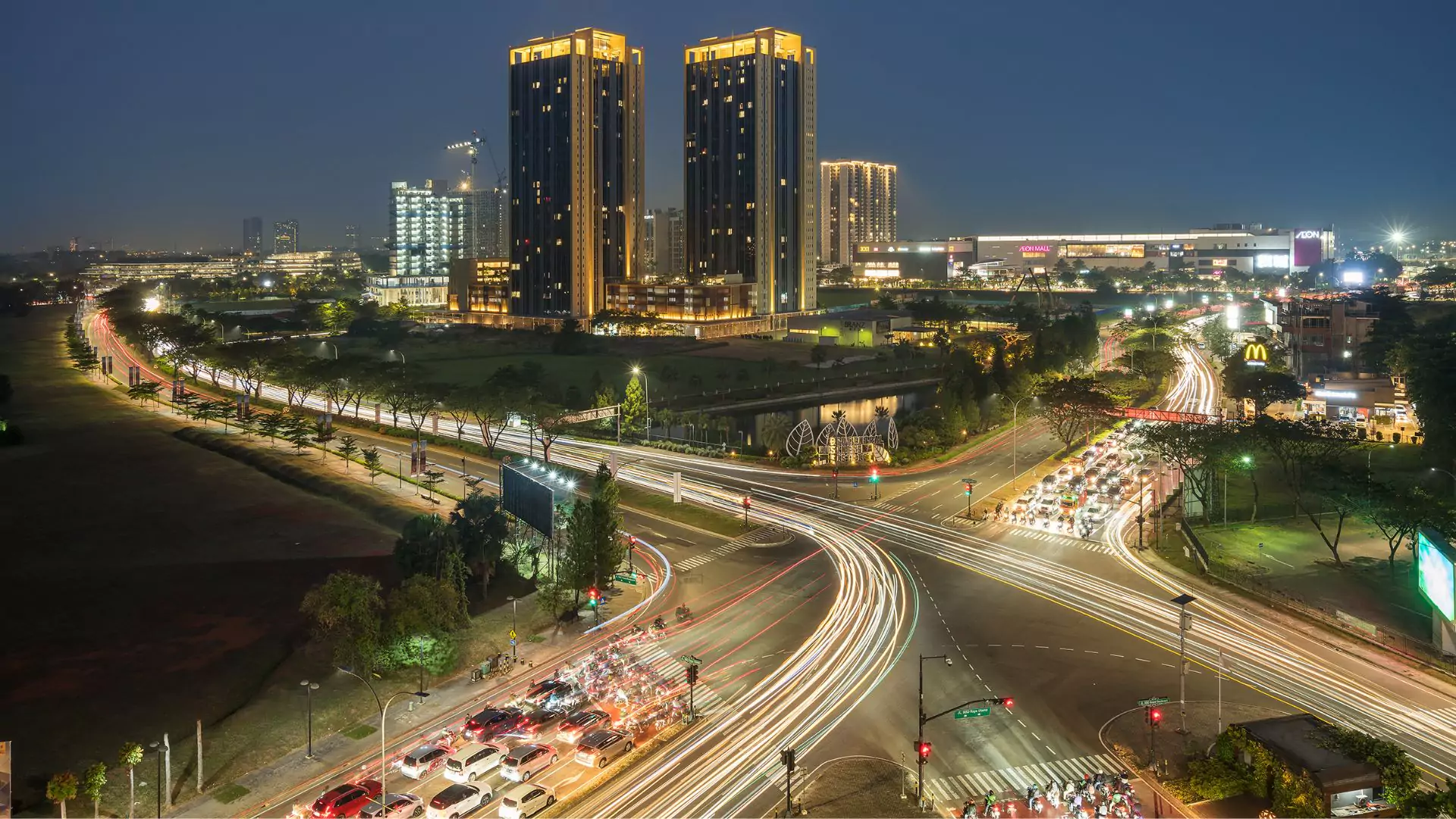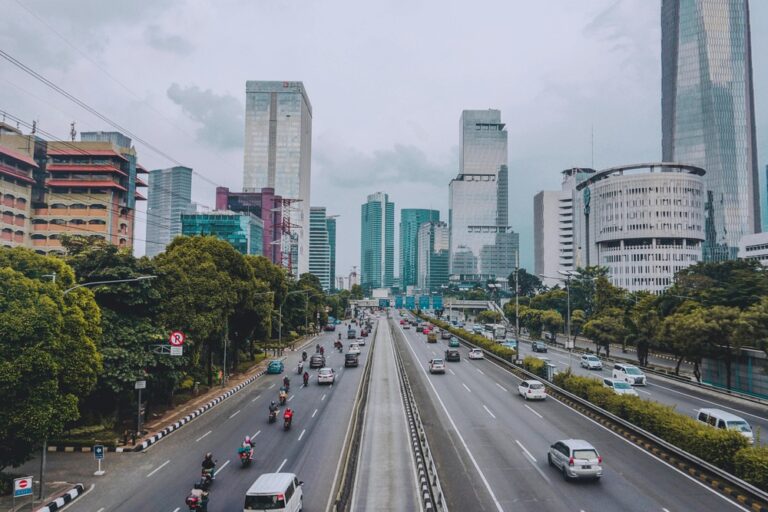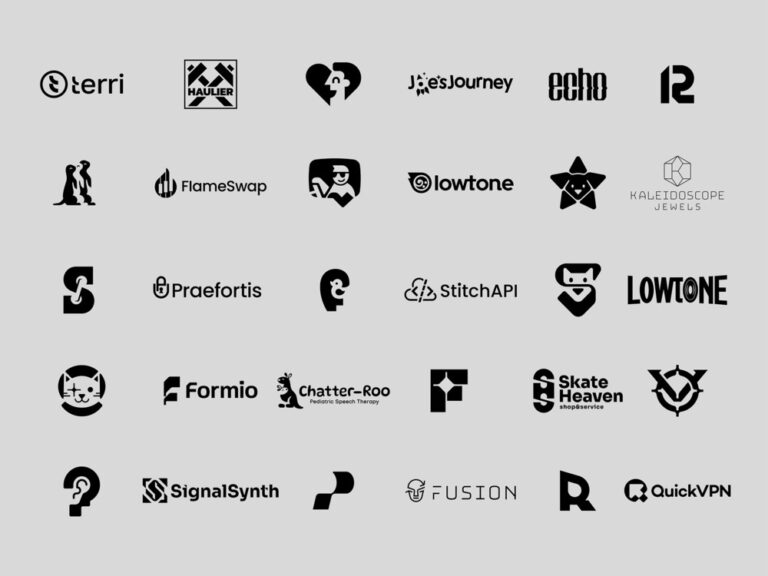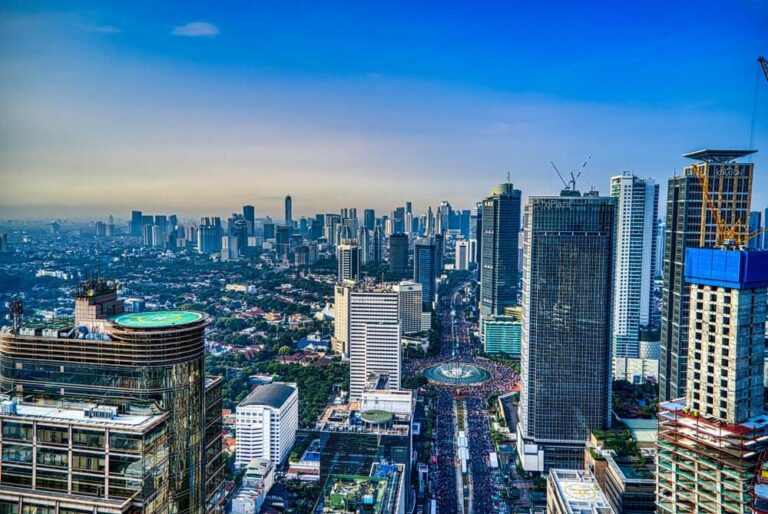When people talk about Special Economic Zones (SEZs) in Indonesia, most of them immediately think of manufacturing hubs like Batam, Morowali, or Mandalika. These zones were designed to attract large-scale industrial investment with tax incentives, easier permits, and international access. But in late 2024, Indonesia took a new step forward by establishing KEK BSD—a completely different type of SEZ, one that focuses not on heavy industry but on the future economy: education, healthcare, and digital technology.
KEK BSD, short for Kawasan Ekonomi Khusus BSD, was officially enacted under Government Regulation No. 38 of 2024 on October 7, 2024. Unlike other zones, it is strategically located inside BSD City, Tangerang, Banten, a modern satellite city within the Greater Jakarta area. Covering nearly 60 hectares across Digital Hub, Green Office Park, and BSD City Phase 3, it represents the first attempt to build a “Silicon Valley–style” ecosystem within Indonesia’s most dynamic urban region.
What makes this KEK unique is not just its location, but also its mission. Instead of serving as a purely industrial cluster, KEK BSD is envisioned as a center of innovation and knowledge—a place where international universities, research institutions, hospitals, startups, and creative industries can collaborate under one ecosystem. For businesses, it means access to world-class infrastructure, government incentives, and a community designed to foster growth.
In the next sections, we’ll explore why KEK BSD was created, who the key players are, what sectors are prioritized, and most importantly, what opportunities it unlocks for business owners and startups.
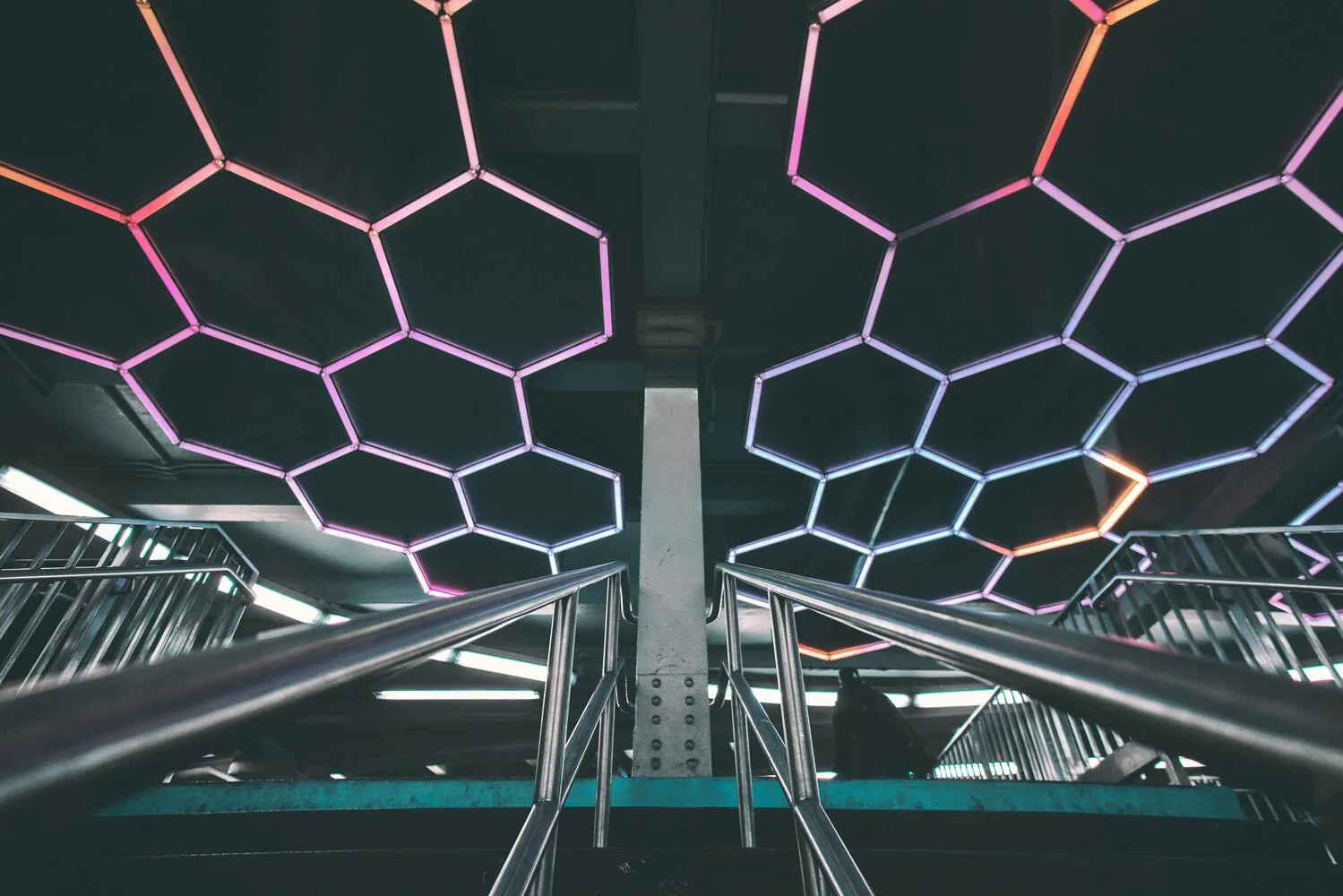
Why Was KEK BSD Created? The Vision Behind Indonesia’s New Digital and Education Hub
When the Indonesian government announced KEK BSD in October 2024, the decision raised an important question: why create a new Special Economic Zone in the heart of BSD City? The answer lies in the country’s shifting priorities. For years, Indonesia’s SEZs were designed around heavy industries, manufacturing, or tourism. While these zones successfully attracted foreign capital, they did not fully address the urgent need to grow Indonesia’s digital economy, healthcare system, and knowledge-based industries. KEK BSD was therefore envisioned as a catalyst for this next phase of economic transformation.
The government set ambitious goals for this new zone. By leveraging its prime location within Greater Jakarta, KEK BSD is projected to attract more than Rp18.8 trillion in investments once fully operational. At the same time, it is expected to generate 10,000–13,500 new jobs, especially for highly skilled workers in technology, education, and healthcare. More importantly, the zone is designed to strengthen Indonesia’s position as a regional innovation hub, creating an environment where global talent, universities, startups, and healthcare providers can collaborate seamlessly.
Another key reason for establishing KEK BSD is to send a clear signal to both local and international investors: Indonesia is serious about building a sustainable, future-proof economy. By offering fiscal incentives, streamlined licensing, and world-class infrastructure, KEK BSD aims to lower the barriers for businesses that want to scale in Southeast Asia’s largest digital market. For entrepreneurs, corporates, and academic institutions, the zone is more than just a business district—it is a long-term platform to grow, innovate, and access new opportunities in one of Asia’s most dynamic regions.
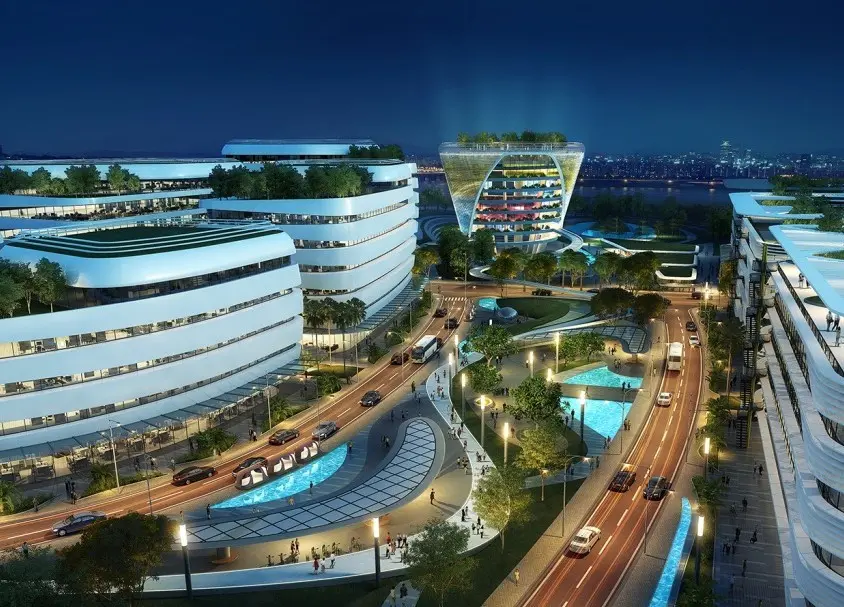
Who Is Behind KEK BSD? Key Stakeholders and Partners
Behind the establishment of KEK BSD stands a strong collaboration between the Indonesian government and the private sector. Officially, the initiative was signed into law by President Joko Widodo through Government Regulation No. 38 of 2024. The Ministry of Economic Affairs and the National Council for Special Economic Zones play a central role in overseeing its implementation, ensuring that the zone operates under national strategic priorities.
The primary developer and operator of KEK BSD is PT Surya Inter Wisesa (SIW), a subsidiary of PT Bumi Serpong Damai Tbk (BSDE), which is part of the Sinar Mas Land group. As the designated Business Entity for the Development and Management (BUPP), SIW is responsible for building infrastructure, managing investment flows, and ensuring the zone’s facilities meet international standards. With decades of experience in property development, Sinar Mas Land provides the backbone that turns BSD City into a sustainable ecosystem ready for global investors.
Alongside government and corporate stakeholders, several academic and industry partners are also shaping KEK BSD’s ecosystem. Notable institutions include Monash University Indonesia, Universitas Prasetiya Mulya, and Apple Developer Academy, which anchor the education and research side of the zone. On the technology front, companies operating in BSD’s Digital Hub—such as AWS, Traveloka, and various startups—contribute to the innovation ecosystem. Together, these stakeholders create a powerful mix of policy, infrastructure, and talent that positions KEK BSD as a unique growth engine for Indonesia’s future economy.
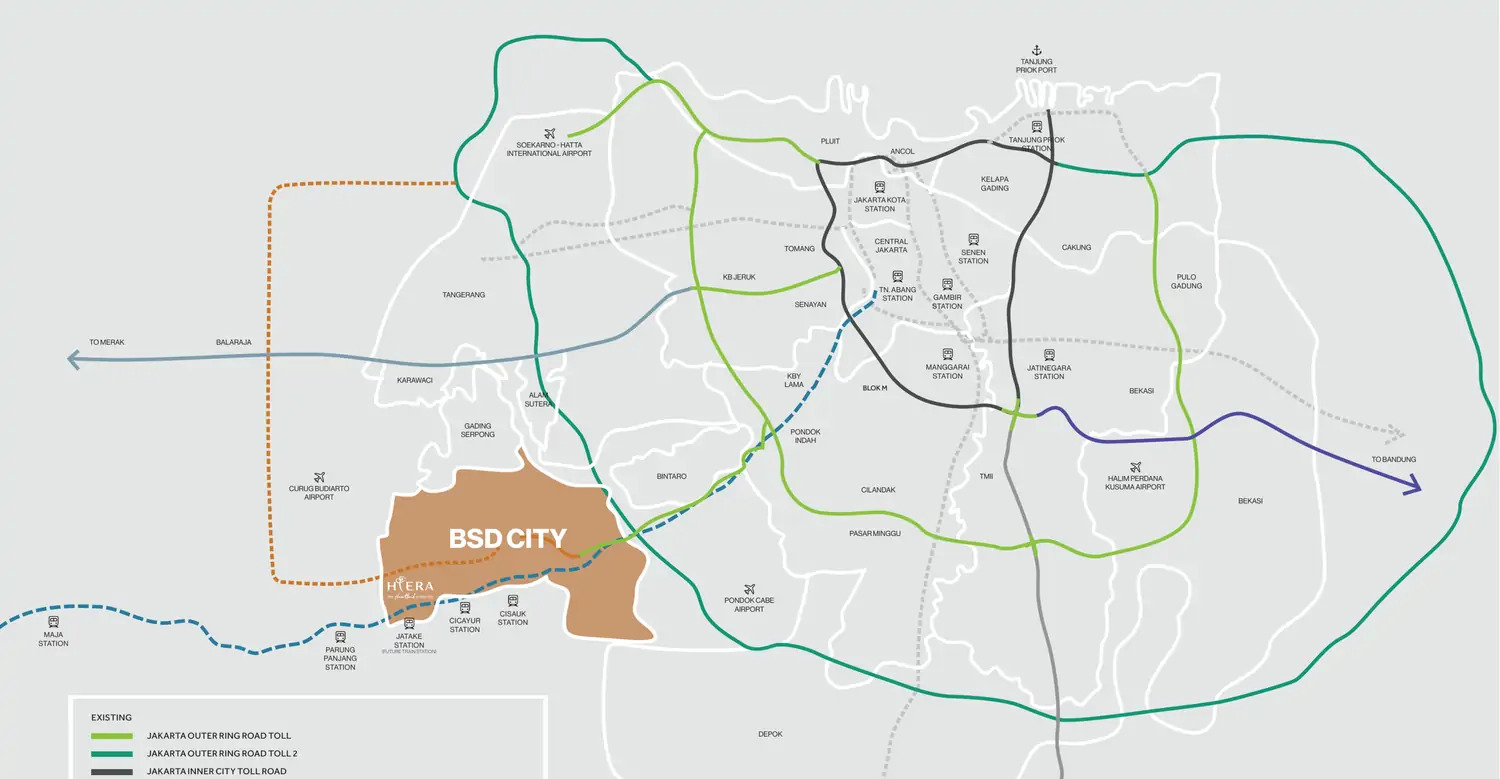
Where Is KEK BSD Located and What Makes It Strategic?
KEK BSD is located in BSD City, Tangerang Regency, Banten Province, right in the heart of Greater Jakarta’s fast-growing urban corridor. Unlike many other Special Economic Zones in Indonesia, which are often situated in remote industrial or tourism areas, KEK BSD enjoys the advantages of being inside a well-developed satellite city. This location makes it highly accessible for both local and international businesses while providing direct integration with residential, commercial, and educational facilities.
The designated KEK area covers approximately 59.6 hectares, divided into two clusters: 28.83 hectares in Green Office Park and Digital Hub, and 30.85 hectares in BSD City Phase 3. These zones are specifically designed to host technology companies, research institutions, healthcare facilities, and creative industries. Within a radius of just a few kilometers, there are modern universities, international schools, hospitals, shopping centers, and a large residential community of more than half a million people—providing both a talent pool and a consumer market.
Accessibility is another major advantage of KEK BSD. The zone is directly connected to Jakarta via toll roads such as Serbaraja, and it is served by the KRL Commuter Line at Cisauk Station. It also sits within an hour’s reach of Soekarno-Hatta International Airport, making it convenient for global investors and partners. This combination of world-class infrastructure, integrated ecosystem, and strategic location positions KEK BSD not just as another SEZ, but as a model of how urban-based special economic zones can drive innovation and growth. For investors, startups, and entrepreneurs, the location itself offers a competitive edge that few other zones in Indonesia can match.

How Does KEK BSD Work and What Does It Mean for Businesses?
KEK BSD is more than just a designated economic area—it is a carefully designed ecosystem built to accelerate Indonesia’s transition into a knowledge-based and innovation-driven economy. To achieve this, the government has aligned its policies with specific priority sectors: education, healthcare, digital technology, and creative industries. Each sector is chosen for its long-term potential to generate jobs, attract foreign investment, and raise Indonesia’s competitiveness in the global market. For instance, the education pillar anchors world-class institutions like Monash University Indonesia and Prasetiya Mulya, while healthcare focuses on international-standard hospitals and advanced research in biotechnology, clinical trials, and pharmaceutical manufacturing.
The digital technology sector is perhaps the most anticipated component of KEK BSD. With the presence of the Digital Hub, Apple Developer Academy, AWS, Traveloka, and a growing number of startups, the zone is designed to become a regional innovation cluster. This environment is meant to attract not only Indonesian entrepreneurs but also global digital nomads, venture capital firms, and tech multinationals. At the same time, the creative industry pillar brings in animation studios, film production, design, and fashion companies—sectors where Indonesia already has strong talent but often lacks infrastructure and international exposure. By clustering these industries together, KEK BSD creates natural synergies between talent, research, and market demand.
From an operational perspective, KEK BSD works under a framework of fiscal and non-fiscal incentives. Investors benefit from reduced corporate income tax, import duty exemptions on capital goods, and simplified licensing through a one-stop service mechanism. Non-fiscal incentives include priority infrastructure access, streamlined immigration for foreign experts, and government-backed facilitation for research and development projects. These incentives are not just financial perks—they are intended to lower entry barriers for businesses that want to scale quickly and sustainably in Indonesia’s largest digital economy.
However, KEK BSD is not without challenges. Civil society groups like WALHI and LBH Jakarta have raised concerns about potential conflicts of interest, as the project is spearheaded by Sinar Mas Land. There are also questions about the environmental and social impacts of expanding urban development into Cisauk and Pagedangan, areas traditionally inhabited by farming communities. Critics argue that without transparent governance, KEK BSD could risk prioritizing corporate interests over local welfare. These challenges highlight the need for ongoing monitoring, community involvement, and sustainable urban planning to ensure the benefits are shared equitably.
For businesses, the meaning of KEK BSD is clear: it represents a gateway to opportunities in Southeast Asia’s fastest-growing markets. Startups gain access to global-standard facilities and funding networks, corporates can expand their R&D capacity, and educational institutions can attract international students and researchers. Even SMEs in creative fields—from design to digital marketing—stand to benefit from the ecosystem. This is also where agencies like Noethera play a role, helping businesses establish their digital presence, optimize marketing, and connect with audiences within and beyond the zone. KEK BSD is not just a place—it is a platform. For forward-looking businesses, it could be the launchpad that turns vision into long-term growth.

Ready to Explore Opportunities in KEK BSD?
KEK BSD is not only a government project—it is a long-term vision to position Indonesia as a hub of innovation, education, and healthcare in Southeast Asia. With nearly 60 hectares of integrated facilities, fiscal incentives, and a growing ecosystem of universities, startups, and global companies, the zone offers a unique platform for businesses ready to scale. The opportunities span across digital technology, creative industries, healthcare, and education, making it one of the most versatile Special Economic Zones in the country. For entrepreneurs, investors, and corporations, this is more than just a location; it is a chance to be part of Indonesia’s next growth story.
At Noethera, we believe that success in KEK BSD will depend on how businesses position themselves digitally. From building professional websites and branding identities to executing data-driven SEO, social media strategies, and advertising campaigns, our team helps companies stand out in competitive markets. Whether you are a startup, a creative studio, or an international institution exploring KEK BSD, Noethera can help you establish the right foundation to grow and connect with the right audience. The future of business in BSD is unfolding now—are you ready to take part?

